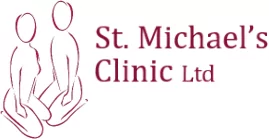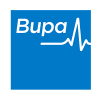Award winning dermatology service, with over 20 years on experience
Short waiting lists, on some occasions offering same week appointments
Safe environment, in Care Quality Commission approved facilities
We are able to offer NHS patients a consultant-led dermatology service from our four sites in Shrewsbury, Much Wenlock and Donnington (Telford) and Oswestry. GPs in Shropshire and Powys can refer all types of skin problems to our consultant dermatologist led team of doctors and nurses. Please visit our policies page to find out more information about data protection, privacy and information governance.
REFERRALS
All patients requiring NHS appointments must be referred by their own general practitioner. Patients registered with GP practices in Shropshire, Telford and Wrekin and Powys can access the service. St. Michael’s Clinic provides a consultation and treatment service at our clinic site in central Shrewsbury on St. Michael’s Street; at The Bungalow next to Donnington Medical Practice; at our small clinic in Much Wenlock and at monthly outreach clinics at Caxton Medical Practice.
Your NHS Appointment
We are able to offer NHS patients a consultant led dermatology service.
GPs in Shropshire and North Powys can refer all types of skin problems to our consultant dermatologist led team of doctors and nurses. All patients requiring NHS appointments must be referred by their own general practitioner.
The process of having your NHS appointment with is is as follows. Following an appointment with your GP, they will refer you. You will than be contacted by the Clinical Commissioners Group, who will offer you a choice of clinics. On choosing St. Michael’s Clinic, we will arrange an appointment at the Clinic with the most appropriate person. As our clinic only deals with Dermatology, you can be sure we are the best placed to help with any skin complaints. If you require surgery, you will be seen by one of our specialist dermatology surgical team rather than then being referred to another department at the hospital.
The clinic provides a range of treatments for various skin conditions. Patients will be seen by one of our clinical team to assess their condition and agree to a necessary treatment plan. Most new consultations last around 15 minutes.
Treatment, in terms of medication or advice may be offered on the day. Most surgical treatments are booked for a future appointment. We provide our patients with all the necessary information to prepare for any surgical procedure and their aftercare.
St. Michael’s Clinic has ample free parking on site, which is very easily accessible to the clinic. We are close to the Shrewsbury train station and are on a frequent bus route. Please visit our contact us page for the addresses and more information on our clinics.
Treatments generally offered for NHS patients are:
SURGERY AND BIOPSIES
Skin surgery clinics are held at St. Michael’s Clinic and Donnington Health Centre. Most skin surgery carried out on the NHS relates to removal of skin cancers or to remove skin lesions which may show early signs of skin cancer. Funding for removal of benign (harmless) skin lesions is often not available on the NHS unless certain criteria are met.
Minor skin lesions may be removed with curettage (scraping off), shave excisions (slicing off) or cryotherapy (freezing off). For larger skin lesions, we perform full excision (cutting off) of lesions: Sometimes we need to close a wound with a skin graft or move a piece of skin around to close the wound but this will be discussed before surgery.
Biopsies are usually performed for rashes or lesions when more information is required prior to treatment and it is likely a biopsy will be needed to confirm diagnosis before major surgery. Whether the lesion is completely removed, or just a small sample taken they are sent to the laboratory for testing to make an accurate diagnosis.
It is important that you let your clinician know if you take warfarin or other blood thinning medications before the day of your surgery. If you have a pacemaker/LCD device fitted then please make your doctor or nurse aware of this before your surgery date.
PHOTODYNAMIC THERAPY
Photodynamic therapy (PDT) is a technique to treat skin cancers and sun-damaged skin which one day might turn cancerous (precancers). In PDT, a special light is shined onto the skin, which then activates a cream which has been applied to the affected area of skin. This treatment, uses a light sensitive chemical called a photosensitiser, kills the abnormal cells in the skin. The photosensitiser without the light is inactive. Only the area of the skin exposed to the light source will be affected by the treatment. PDT is used to treat some types of basal cell carcinomas, bowen’s disease and actinic keratoses.
PHOTOTHERAPY (UVB)
The term phototherapy means the use of light to treat medical conditions. Natural sunlight has been found to be beneficial in certain skin disorders for thousands of years. It is the ultraviolet part of the radiation produced by the sun that is used in phototherapy, namely the Ultraviolet A (UVA) and Ultraviolet B (UVB) wavelengths.
St. Michael’s Clinic offers UVB phototherapy at both the St. Michael’s Clinic and Donnington sites. UVB in which the skin condition is treated a small part of the UVB spectrum to treat the condition.
CRYOTHERAPY
The term ‘cryotherapy’ literally means treatment using low temperature and refers to the removal of skin lesions by freezing them. This is achieved using liquid nitrogen which is extremely cold, boiling at minus 196 °c. It is necessary to store and transport it in special flasks. A wide variety of superficial benign lesions can be treated with cryotherapy, but it is most commonly used to remove actinic keratoses (an area of sun damaged skin found predominantly on sun exposed parts of the body), viral warts, seborrhoeic keratoses and other benign lesions. Occasionally, your dermatologist may suggest using cryotherapy to treat small skin cancers such as Basal Cell Carcinomas and Bowen’s Disease.
PATCH TESTING
Patch testing is a specialist procedure carried out to find out whether your skin condition is caused or aggravated by an allergy to substances which may have met it. This is called contact allergy. Substances that cause an allergic reaction are called allergens. They can be found at home, at work or in leisure activities. There are many substances that you will be tested against which are most frequent in contact with the skin such as natural rubber latex, preservatives, metals, perfumes, cosmetics, leather chemicals, lanolin, and plants among others. Additional substance is sometimes added to this if it is thought they may trigger your skin condition. You may also be tested with some of your own work or home products such as personal toiletries.
STEROID INJECTIONS
Steroid injections for scars can be administered. Certain criteria need to be met to qualify for these to be funded by the NHS. Please get in contact if you have any questions regarding steroid injections.
LASER TREATMENTS
We are able to offer laser treatments for very specialist areas such as large facial birth marks. Lasers work by giving off a very strong light of a single wavelength which is able to be absorbed into the tissue it is targeting. The light is absorbed into the area of treatment and converted into heat, destroying the target. As this all happens very quickly, there is little time for the heat to affect any nearby areas so the risk of scarring is very minimal.
PRESCRIBING
Finding Us
We are able to offer NHS patients a consultant-led dermatology service from St. Michael’s Clinic, as well as our peripheral sites in Much Wenlock, Donnington (Telford) and Oswestry. Please see below for the location of our sites and for more information including opening hours, please visit our contact us page.
WHY CHOOSE ST. MICHAEL'S CLINIC?
At St Michael’s Clinic, we have a team of highly trained Consultant dermatologists, who have completed specialist training in Dermatology and are on the specialist register of the General Medical Council. All our consultants hold substantive contracts with the best Dermatology centres in leading NHS hospitals. Therefore, you can be certain of the highest quality private care.
We offer a range of treatments and can offer one, or a combination of treatments to achieve the best results. Unlike many other clinics, we can offer diagnosis and treatment all under one roof by expert consultant dermatologist, so you know you’ll be in safe hands.




